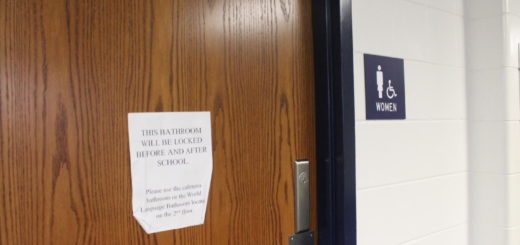It’s time to get over the COVID maturity deficit
As first semester comes to a close, the stage is set for Conant students to reflect on both the successes and the shortcomings in their behavior at school. Have underclassmen successfully adapted to what is expected of them in high school given the lack of a full middle-school education? Have upperclassmen been able to re-immerse themselves in the demands of in-person learning after spending nearly two years completely online? Does the way students view their own behavior differ significantly from how Conant faculty views them? The Crier staff feels that a reassessment of the behavior of the student body is necessary in order to get closer to normal next semester.
One phrase to reference the way some students have been acting at school is a “maturity deficit.” This refers to the excess of immature behavior in some students, particularly those who had portions of their middle school education online. Many students have felt the effects of “unfinished learning,” a term used to describe the way that students were unable to learn as much last year as they would in a normal school year.
“It felt like a lot of time was wasted refocusing students who didn’t have their camera on or weren’t paying attention,” Julian Selmeczy, ‘24, said. “Overall, I think a lot of people just didn’t pay attention because they could get away with it.”
This has led to some students disengaging from school altogether, causing loss of knowledge or skills they once excelled in. Many have moved onto high school without the important building blocks necessary for them to succeed: not only academically, but socially and emotionally as well.
Schools are hubs of social activity and human interaction. When schools closed, many students lost out on vital lessons on how to treat one another with respect, and how to appreciate differences in opinion rather than responding with ignorance and hatred towards diverse perspectives.
In the hallways and classrooms of Conant, students are exposed to a variety of different cultures, perspectives, and experiences that may differ from their own. However, last year’s online format removed these important interactions with their peers, causing some students this year to act more offensively towards others. The Crier staff has seen multiple instances of students, particularly underclassmen, making offensive comments, vulgar insinuations, or even flat out saying slurs. This sort of behavior may be expected in middle school, when students are still trying to understand their newfound independence and tend to make stupid mistakes, but the expectations are higher at Conant.
The root of at least some of these issues can be attributed to the missing middle school education last year. In middle school, students are still trying to find themselves and may not yet be completely confident in who they are, which may make them less accepting of those around them. In a regular school year, this intolerance will have generally dissipated by the time a student reaches high school, as over time students become more comfortable with themselves. However, without a full middle school education bridging the gap between elementary school and high school, some students have reverted back to “middle school” behavior.
“Peer interaction in middle school, the very beginning of establishing yourself as an individual (and) figuring out who you are in this world, is such an important part of that very early adolescent process,” Conant Principal Julie Nowak said. “Something that’s really unique about Conant is that we are not a one town school, so we pull from all these different communities, these different middle schools. We are not Hoffman Estates High School, we are not Schaumburg High School. We have students from Hoffman, from Schaumburg, from Elk Grove, from Roselle. That’s a little bit of a unique challenge, believe it or not.”
The challenge of unifying Conant students from different backgrounds was exacerbated when peer-to-peer interactions were stifled last year. Interacting solely via Zoom with new classmates and teachers was far from ideal. According to Nowak, a panorama study conducted at the beginning of the year showed a “low percentage of students said they felt a sense of belonging” at Conant.
“I do think, certainly with regard to our students who essentially missed their middle school experience, it is evident that in terms of general behavior that we’re seeing in the hallways, that we’re seeing in the classrooms, respect towards teachers, those sorts of things,” Nowak said. “There is no doubt we’re seeing that impact.”
That’s not to say that all underclassmen have floundered with engagement and respect at Conant. Some have thrived, finding communities in clubs, and are adapting well to the pressures of high school. Others, however, continue to act disrespectfully and immaturely, which the Crier staff want to see change.
So, as we rush into winter break, and later, second semester, keep this in mind, Conant student body: you’re in high school now. So act like it.




Recent Comments